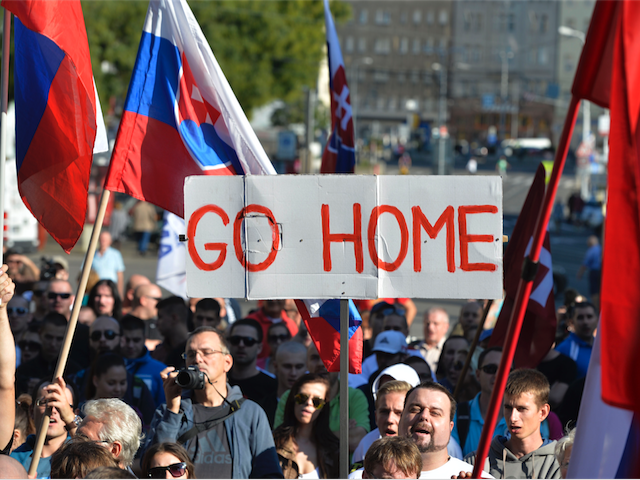(Reuters) – Luxembourg’s Foreign Minister Jean Asselborn said on Thursday Slovakia’s failure to admit its quota of 1,500 refugees under a European Union plan would hobble its ability to lead when it assumes the rotating EU presidency in July.
Asselborn, who was EU president when the agreement was made, urged Slovakia’s foreign minister, Miroslav Lajcak, to press his government to accept the migrants and implement the EU plan.
Failure to do so, he said, would make it difficult for Slovakia to credibly lead the bloc.
“Would it really be so dramatic to take in these 1,500 people through September 2017 under the terms of the agreement on relocation and resettlement?” Asselborn said at a public discussion at the German foreign ministry.
“If that doesn’t happen, you will enter the presidency with a handicap that will plague you over and over again. And that is not good for your country, and it is not good for Europe.”
Lajcak told Asselborn his country was well aware of the responsibilities of the six-month EU presidency, and planned to act as “an honest broker”.
But he reiterated his country’s strong opposition to the quota-based system agreed by the EU in September, noting that most migrants did not want to come to Slovakia, and three out of four who were admitted to the country later left.
“If these people come and knock on our door, we always open the door, but you want to force these people to go to countries that they don’t even know exist,” Lajcak said. “We are a transit country.”
Lajcak told Reuters he would press the EU to revisit the quota-based refugee distribution system because it was not working. He said Slovakia had grave concerns about its ability to absorb and integrate the migrants.
“We should listen to each other, that’s what the European idea is built upon,” he said.
“That we respect each other’s opinion and come to a conclusion that everyone can feel comfortable with.”
The European Union, backed by Germany, approved a plan in September to deal with Europe’s worst refugee crisis since World War Two by sharing out 120,000 refugees across its 28 states. The plan was vehemently opposed by Slovakia and three other ex-communist eastern nations.

COMMENTS
Please let us know if you're having issues with commenting.